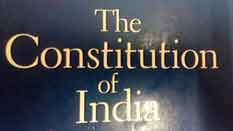Concept Of Hiba
The concept of Hiba under Muslim law has existed from 600 A.D. Gift is the
transfer of a property from one person to another. Under Muslim law, the Gift
transfer is not controlled by the Transfer of Property Act, 1882 but is governed
by Muslim law itself. Muslims can divide their property in many ways out of
which one is "Hiba".
The delivery of gift in Muslim law can be actual or constructive. in actual delivery, the gift which is being made is physically transferred to the donee, and in case of constructive delivery it is just a symbolic transfer of property. Also, there are some instances where the delivery of the possession of the property is not necessary.
Under Muslim law, Muslims can divide their property in many ways. It could be through Gift which is known as Hiba in Muslim law and through a will which is known as Wasiyat in Muslim law. The term gift is known as 'Hiba' in Muslim law. Whereas in English, the word 'gift' has a much wider expression which is applicable to each and every transaction where an individual transfers his or her property to another without any consideration for the same. In contradiction to this, the term 'Hiba' in Muslim law has a much narrower connotation.
A Muslim is allowed to give away his whole property in his lifetime but he can only give one-third of his property through a will. Also, the religion of the person to whom the gift is made is irrelevant. The transfer of property through the way of gift is immediate and without consideration. It is an unconditional transfer of property. Although the gift being a property has to be governed by the Transfer of property act, 1882. But Chapter 7 of Transfer of Property Act 1882 does not cover the gift under Muslim law. So, the Muslim Personal law governs the Muslim gift or "Hiba".
These conditions are:
In the famous case of Ilahi Samsuddin v. Jaitunbi Maqbul, it was held by the Supreme Court that under Muslim laws the statement made by the donor and the acknowledgment made by the donee can be oral regardless of the idea of the property. The presentation and acknowledgment made through composing are through the method of gift deed. In Muslim law, the gift deed is known as Hibanama. The Hibanama may not be on the stamp paper and isn't mandatory to be enrolled.
In the case of Md. Hesabuddin v Md. Hesaruddin, where Muslim women moved her property by the method of Gift or Hiba and the gift deed was not on the stamp paper it was held to be substantial by the Gauhati High Court.
The announcement ought to likewise be communicated. A gift made in an uncertain way is null and void.
Bibliography
Websites
The delivery of gift in Muslim law can be actual or constructive. in actual delivery, the gift which is being made is physically transferred to the donee, and in case of constructive delivery it is just a symbolic transfer of property. Also, there are some instances where the delivery of the possession of the property is not necessary.
Under Muslim law, Muslims can divide their property in many ways. It could be through Gift which is known as Hiba in Muslim law and through a will which is known as Wasiyat in Muslim law. The term gift is known as 'Hiba' in Muslim law. Whereas in English, the word 'gift' has a much wider expression which is applicable to each and every transaction where an individual transfers his or her property to another without any consideration for the same. In contradiction to this, the term 'Hiba' in Muslim law has a much narrower connotation.
A Muslim is allowed to give away his whole property in his lifetime but he can only give one-third of his property through a will. Also, the religion of the person to whom the gift is made is irrelevant. The transfer of property through the way of gift is immediate and without consideration. It is an unconditional transfer of property. Although the gift being a property has to be governed by the Transfer of property act, 1882. But Chapter 7 of Transfer of Property Act 1882 does not cover the gift under Muslim law. So, the Muslim Personal law governs the Muslim gift or "Hiba".
Essentials Of Hiba
There are principally three conditions which should be satisfied for the effective exchange of property or making of a gift by a Muslim individual.These conditions are:
- Declaration of gift by the donor.
- Acceptance of gift by the donee.
- Transfer of ownership by the donor and its acknowledgment by the donee.
- Firstly, the individual who is giving the property or making the gift i.e Donor, he/she should be a Muslim. Some other individual instead of Muslim can't make Hiba.
- Secondly, the individual ought to be of the equipped age i.e he/she should be major.
- Thirdly, the assent of the donor should be free. On the off chance that the assent of the individual is acquired forcibly, pressure, excessive impact is no assent and such a gift is no gift .
- Fourthly, the individual should be of sound psyche. Any gift made by an individual of shaky psyche is certifiably not a substantial gift.
- And in conclusion, the donor ought to have the responsibility for property which he will part with as a gift.
Declaration Of Gift By The Donor
Announcement of gift by the donor addresses his/her ability to make a gift. The presentation made ought to be understood and not questionable. A donor can make the affirmation in two different ways that are oral or composed. In the famous case of Ilahi Samsuddin v. Jaitunbi Maqbul, it was held by the Supreme Court that under Muslim laws the statement made by the donor and the acknowledgment made by the donee can be oral regardless of the idea of the property. The presentation and acknowledgment made through composing are through the method of gift deed. In Muslim law, the gift deed is known as Hibanama. The Hibanama may not be on the stamp paper and isn't mandatory to be enrolled. In the case of Md. Hesabuddin v Md. Hesaruddin, where Muslim women moved her property by the method of Gift or Hiba and the gift deed was not on the stamp paper it was held to be substantial by the Gauhati High Court. The announcement ought to likewise be communicated. A gift made in an uncertain way is null and void.The Requisites Of The Donee
- Firstly, religion is no bar for accepting the gift which must be compulsorily made by a Muslim. The donee can be of any religion, Muslim or non-muslim.
- Secondly, the age is again not a bar for a donee. He/she can be of all ages for example major or minor.
- Thirdly, a blessing can be made to an unborn child, yet it should be in the womb of her mom. This is so because of the Transfer of property act, 1882 which discusses the advantage for the unborn individual.
- Fourthly, the exchange of property can likewise be made to a religious entity.
Acceptance Of Gift By The Donee
For the valid gift, it should be acknowledged by the donee. On the off chance that there are multiple or two donee, it should be acknowledged by both the donee's and it should be acknowledged independently. Since in Islamic law the Hiba is treated as a respective exchange i.e the donor makes the exchange and it should be acknowledged by the donee . In the event that the acceptor of the gift is minor or any individual of unsound mind then it very well may be acknowledged by his guardians. These individuals are his/her-- Father
- Father's Executor
- Paternal Grand-Father
- Paternal Grand Father's Executor
Kinds Of Gifts
- Hiba-il-iwaz
- Hiba ba Shart ul Iwaz
Hiba-Il-Iwaz
Under Islamic law, Hiba implies gift and iwaz implies consideration . Hiba-il-iwaz hence implies, the gift for the consideration previously given. Under every one of the laws, there is no framework where there is a consideration for the gift. However, under Muslim law, there is an arrangement of gift with an exchange. Requisites of a valid Hiba-il-iwaz:- Firstly, there should be a finished and substantial gift made by the donor to the donee. On the off chance that the gift made isn't as indicated by the standard of Muslim law then it is no gift.
- Secondly, there should be a payment consideration made by the donee.
Hiba-Ba-Shart-Ul-Iwaz
It implies a gift made with a specification for return. For this situation, the consideration isn't paid voluntarily yet it is paid in light of the fact that it is an essential condition here. Essentials of a substantial Hiba-ba-Shart-ul-Iwaz:- Firstly, the conveyance of ownership is significant; it is revocable until the iwaz is paid
- Secondly, when the iwaz is paid it gets unalterable.
- Thirdly, an exchange when finished by payment of Iwaz, expects the personality of a sale.
Revocation Of Gift
Albeit old practices show us that the prophet was against the arrangement of revocation of gifts. Today, it very well may be seen that it is the grounded rule of Muslim law that every one of the gifts which are made intentionally can be revoked . The revocation of the gifts of various types relies on the various schools and Shia's and Sunni's. The Muslim lawgiver arranged the kinds of revocation under two unique sorts:- Revocation of gifts before the conveyance of possession.
- Revocation of gifts after the conveyance of possession.
When The Delivery Of Possession Is Not Necessary
There are a few situations where the conveyance of possession isn't required. Like, a gift starting from one spouse to another, or say guardian to the ward.Declaration Of Gift By The Donor
Announcement of gift by the donor addresses his/her ability to make a gift. The presentation made ought to be understood and not questionable. A donor can make the affirmation in two different ways that are oral or composed.In the famous case of Ilahi Samsuddin v. Jaitunbi Maqbul, it was held by the Supreme Court that under Muslim laws the statement made by the donor and the acknowledgment made by the donee can be oral regardless of the idea of the property. The presentation and acknowledgment made through composing are through the method of gift deed. In Muslim law, the gift deed is known as Hibanama. The Hibanama may not be on the stamp paper and isn't mandatory to be enrolled.
In the case of Md. Hesabuddin v Md. Hesaruddin, where Muslim women moved her property by the method of Gift or Hiba and the gift deed was not on the stamp paper it was held to be substantial by the Gauhati High Court.
The announcement ought to likewise be communicated. A gift made in an uncertain way is null and void.
The Requisites Of The Donee
There must be a bona fide intention of the donor to transfer the property. The gift can be revoked by the donor after a decree of revocation has been passed by the court of law. While concluding we can say that gift is an offer made by the donor to a person who accepts the offer, known as donee. So, the term "gift" used in English is generic and should not be confused with that of Muslim law known as "Hiba".Bibliography
Websites
- Lawcorner.in
- Lawepic.com
- Siasat.com
- Legalbites.in
- Lawctopus.com
Award Winning Article Is Written By: Ms.Simran Singh

Authentication No: OT364931917453-10-1023
Law Article in India
Legal Question & Answers
Lawyers in India - Search By City
LawArticles
How To File For Mutual Divorce In Delhi

How To File For Mutual Divorce In Delhi Mutual Consent Divorce is the Simplest Way to Obtain a D...
Increased Age For Girls Marriage

It is hoped that the Prohibition of Child Marriage (Amendment) Bill, 2021, which intends to inc...
Facade of Social Media

One may very easily get absorbed in the lives of others as one scrolls through a Facebook news ...
Section 482 CrPc - Quashing Of FIR: Guid...

The Inherent power under Section 482 in The Code Of Criminal Procedure, 1973 (37th Chapter of t...
The Uniform Civil Code (UCC) in India: A...

The Uniform Civil Code (UCC) is a concept that proposes the unification of personal laws across...
Role Of Artificial Intelligence In Legal...

Artificial intelligence (AI) is revolutionizing various sectors of the economy, and the legal i...








Please Drop Your Comments